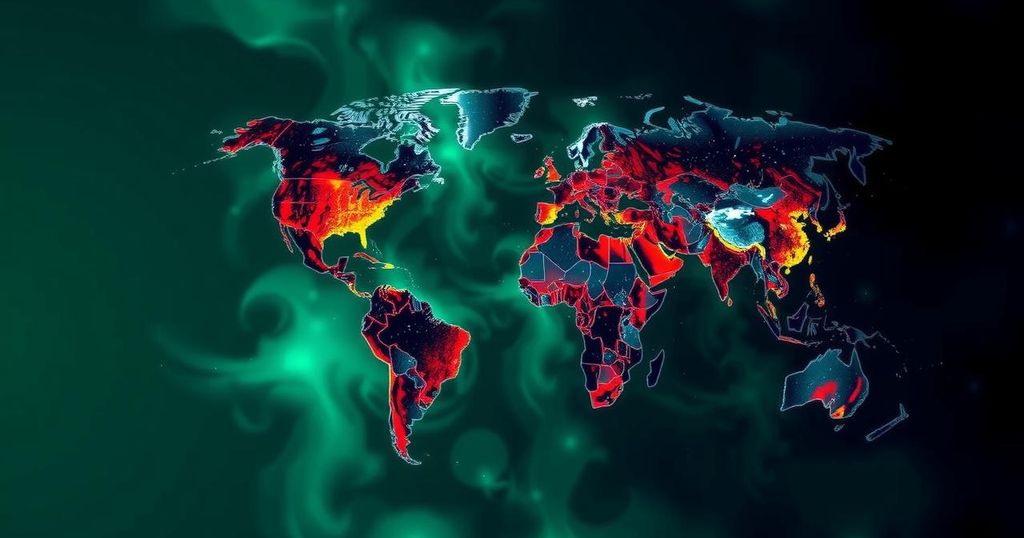Escalating Methane Emissions: A Global Challenge Yet to be Fully Addressed
Global methane emissions, a significant climate concern, are largely underreported, with recent findings indicating an increase in identified super-emitting sources. GHGSat’s satellite monitoring suggests the oil and gas sector, along with waste management and mining operations, are primary contributors. Despite international pledges to reduce methane releases, emissions continue to rise, emphasizing the need for better tracking and accountability.
Recent analyses highlight that global methane emissions, a potent greenhouse gas, are not being accurately documented, with only a fraction of the problem being understood. According to Stephane Germain, the CEO of GHGSat, the situation is deteriorating rather than improving. He reported that since late 2023, GHGSat satellites have identified approximately 20,000 super-emitting sites worldwide, which release significant quantities of methane – specifically at rates of 100 kilograms (220 pounds) per hour. This figure represents a notable increase from the previous year’s identification of roughly 15,000 super-emitting sources. Despite international pledges made at the 2023 COP28 climate talks in Dubai, including commitments from 50 leading oil companies to nearly eliminate methane emissions by 2030, actual emissions continue to rise. Germain indicated that almost half of the detected methane emissions originate from the oil and gas sector, with significant contributions also coming from waste management and mining activities. Furthermore, the detection capabilities have been enhanced with the addition of three new satellites; however, Germain expressed skepticism that this expansion alone accounts for the increased emission detection. He noted the growing energy demands in developing countries, which remain largely reliant on fossil fuels, contributes to this global challenge. The most substantial methane releases are occurring in North America and Eurasia, with Canadian landfills being a primary source. Alarmingly, studies reveal that American oil and gas infrastructure may be contributing threefold more methane emissions than previously estimated by governmental authorities. Methane levels in the atmosphere are increasing, exacerbating climate change impacts beyond what carbon dioxide alone would cause. While carbon dioxide remains the predominant greenhouse gas affecting climate, methane’s potency cannot be overlooked, as it lasts for a shorter duration but has a much higher immediate impact. GHGSat is part of a growing network of organizations focusing on satellite-based measurements to deliver better insights into the global methane emissions crisis, collaborating with entities like Carbon Mapper and MethaneSAT.
The article discusses the urgent issue of methane emissions, which significantly contribute to climate change. Methane, a greenhouse gas substantially more potent than carbon dioxide in the short term, is particularly concerning due to its increasing levels in the atmosphere. It is predominantly released from fossil fuel extraction, waste management, and mining. Recent findings suggest that existing estimates of methane emissions are significantly underestimated, prompting calls for enhanced monitoring and accountability in emissions reporting. International efforts, such as those initiated during climate conferences, aim to address this issue, yet the progress remains insufficient compared to the scale of the problem.
In conclusion, the findings underscore the growing crisis of underreported methane emissions globally. Despite commitments from various industries to combat these emissions, the problem appears to be escalating. Enhanced monitoring and accountability measures are crucial for addressing the significant contributions of methane to climate change. The international community must take concerted actions to honor emissions reduction pledges to mitigate the impending climate impacts associated with methane.
Original Source: apnews.com




Post Comment